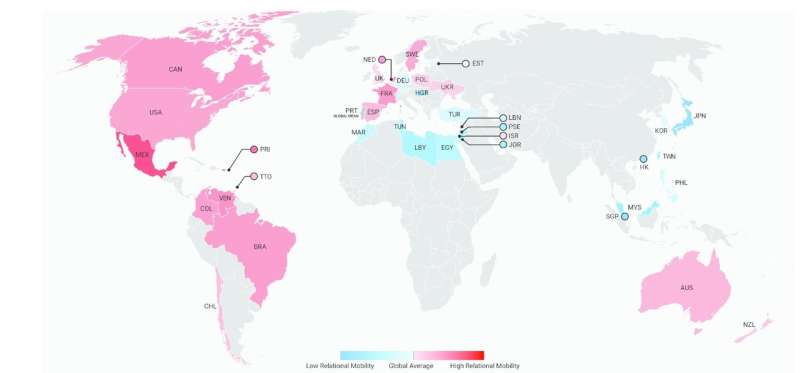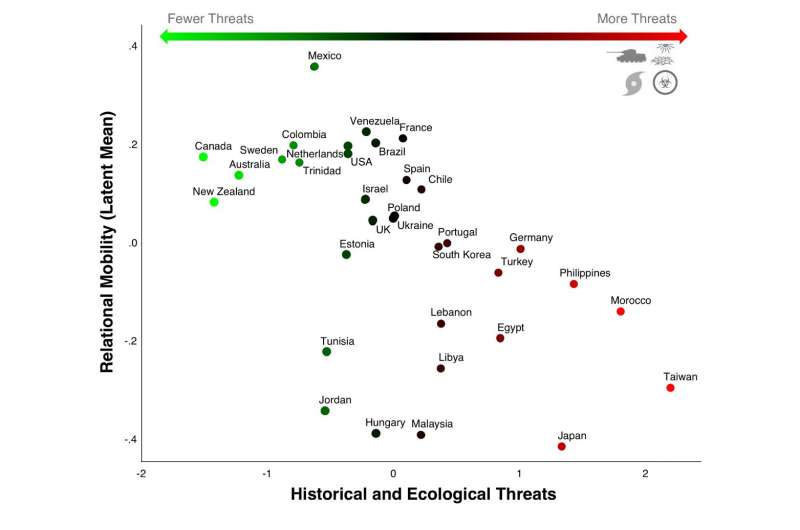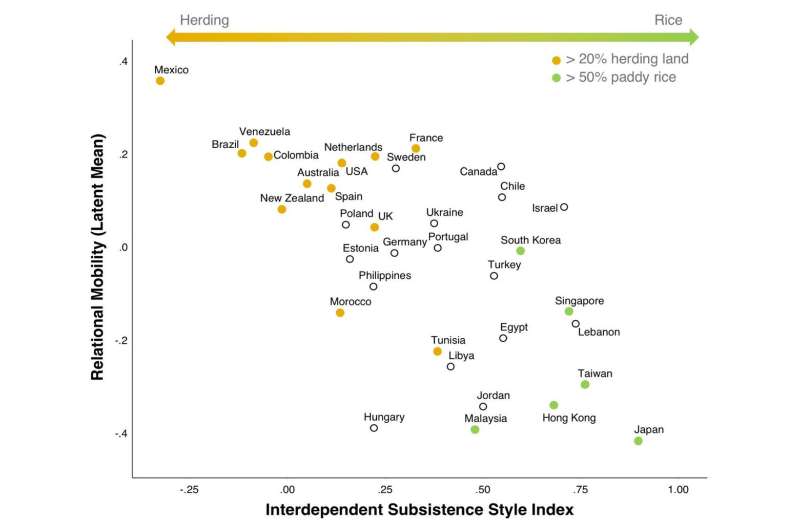Relational mobility may influence your interpersonal behaviors

A large-scale analysis has suggested that it's easier for people to form and replace relationships in North America, Europe and Latin America, compared to Asia and the Middle East, what causes these differences, and how they may influence people's thoughts and behavior?
Researchers from Hokkaido University in Japan and 25 collaborating universities and organizations worldwide have reported on freedom and choice in interpersonal relationships in 39 countries and regions. The researchers used advertisements on Facebook to recruit nearly 17,000 people for a poll in order to assign each country a "relational mobility" ranking from high to low. Countries with the highest relational mobility were found to be in North and South America, Europe and Australasia (Australia and New Zealand), while those with the lowest were concentrated in the Middle East and Asia.
The team measured relational mobility by asking participants how much opportunity they have to meet new people, and how much freedom they have in beginning or ending a relationship. People from societies assigned a high relational mobility rank showed an overall higher rate of personal self-esteem, closeness in friendship, and proactive interpersonal behaviors such as disclosing personal secrets. In contrast, people from societies assigned a low rank mentioned having lower levels of self-esteem and trust. However, people from societies with low relational mobility tend to expect more permanence and stability in their jobs and relationships, qualities that seem less secure in high relational mobility societies.

To investigate what may have caused the differences in relational mobility, the researchers analyzed respondents' answers using several metrics, including societal threats and subsistence style. Findings indicate that regions of the world that suffer less from man-made and natural threats (war, disease, natural disasters, etc.) have a higher relational mobility score than those that suffer from these threats more frequently. This is thought to be because disasters force people to become more co-dependent on others for survival. For the same reason, traditional herding cultures were seen to have a higher relative mobility than rice-cultivating cultures, as the former is a highly nomadic and individualistic activity and the latter an intensive collectivistic one, requiring close coordination between people.

"Some findings were unexpected, particularly in light of traditional cultural theories," says Hokkaido University Professor Masaki Yuki, the principal investigator of the project. "Data from Latin America was surprising. Latin American societies are typically said to be collectivistic in the social sciences, but a high level of relational mobility found in the data suggests that Latin American societies may be more individualistic than is traditionally thought. While this study may provide some insight, many more studies are needed to better understand how humans structure their society and interpersonal relationships, and how the society in turn shapes our thinking and behavior."
More information: Robert Thomson el al., "Relational mobility predicts social behaviors in 39 countries and is tied to historical farming and threat," PNAS (2018). www.pnas.org/cgi/doi/10.1073/pnas.1713191115
Journal information: Proceedings of the National Academy of Sciences
Provided by Hokkaido University

















